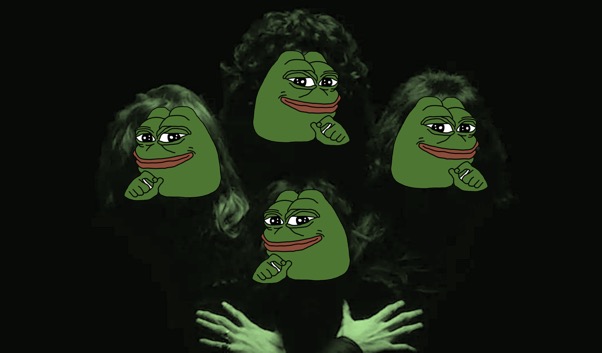Ideologues seem incapable of doing so without resorting to name-calling.
Conservatism in the Bronze Age

What should the Right make of Bronze Age Pervert and his Twitter devotées?
Bronze Age Pervert, or BAP, is the anonymous creator of both a popular Twitter account and the independently published Bronze Age Mindset (BAM), a hit on Amazon. BAP’s approach is unorthodox but profoundly compelling to his followers, one of whom recently called BAM “the deepest introspection into the human soul you’ll read in decades.” The book is addressed directly to these followers, whom BAP enjoins to become “a brotherhood of men” and fight against “the grim shadow of a movement” which is oppressing all valorous life. Otherwise human society will remain the drab, weak prison of conformity BAP calls “bugworld.”
As this phraseology suggests, BAM is somewhat different in tone and outlook from most of the books that garner attention at the Claremont Institute. But that is in part why Michael Anton—senior fellow at Claremont, lecturer in politics at Hillsdale College, and former national security official in the Trump administration—did decide to review BAM in the summer 2019 Claremont Review of Books. Anton’s review takes its subject seriously as a work of political philosophy (although BAP himself insists that he does not write philosophy but “exhortation”). BAM, writes Anton, has a “serious core” beneath its internet jargon: “it speaks directly to a youthful dissatisfaction…with equality as propagandized and imposed in our day.” Subsequently, BAP published his own response to the review in The American Mind.
The American Mind is in sympathy with all those who find identity politics infuriating and the current conservative response to it lacking in either gravity or intensity. More on the Right must reckon as Anton has done with BAP’s effectiveness—even if, like Anton, they may have serious critiques of BAM and its ethos. Anton’s review of BAM asks why the young online Right rejects mainline conservatism, and answers that conservative enfeeblement has opened the door to a dangerous second look at “slavery, serfdom, perpetual peasantry, might-makes-right, warlordism, gangsterism, bullying, or other forms of what the religious and philosophic traditions call ‘injustice.’” Here, we offer a selection of responses to Anton’s review and BAM’s influence.
That influence is articulated and defended by Second City Bureaucrat, who (like BAP himself) writes pseudonymously and has touched an important nerve in online conservative commentary. In “Why Not Actually Engage with Bronze Age Mindset,” he accuses BAP’s critics of dismissing a worthwhile and instructive phenomenon via facile name-calling motivated by insecurity.
For Dan DeCarlo, Anton’s engagement with the internet’s more recherché texts is laudable but comes too late: the ultra-conservative online movement known as “Frogtwitter,” of which BAP was a part, has already effectively played itself out. The real response to the identitarian Left, writes DeCarlo, will have to go “beyond Frogtwitter’s juvenile, if necessary, nihilism to something else entirely.”
But nihilist absurdity has powerful energy, writes Tara Isabella Burton. Anton, she argues, has not taken into account the full extent to which BAP draws his potency from simply trolling us all. The penetration of BAM into mainstream discourse is a successful act of performance art. For BAP, real life force today begins with the liberating experience of making establishment clowns take a joke too seriously.
To the contrary, Spencer Klavan suggests, BAP’s man-poetry matters because it’s so earnest. Beneath the mischief, he affirms masculine virtue with deep love. But because BAM lacks a sense of restraint to modulate pure id, it runs the risk of porting in from current-age feminism a brutal, authoritarian vision of manhood.
James Poulos, responding to BAP’s own apologia in The American Mind, sees the new digital ecosystem in which BAP has thrived as the driver of a growing conservative movement which will outlive BAM and exceed it in importance. Social dogmas which were regnant during the televisual age are obsolescing and, though the resistance of the old order is frantic and desperate, Poulos predicts that its hold on the culture is weakening and will at last release entirely. And that is all to the good.
The American Mind presents a range of perspectives. Views are writers’ own and do not necessarily represent those of The Claremont Institute.
The American Mind is a publication of the Claremont Institute, a non-profit 501(c)(3) organization, dedicated to restoring the principles of the American Founding to their rightful, preeminent authority in our national life. Interested in supporting our work? Gifts to the Claremont Institute are tax-deductible.
Our decadent elite cannot survive our technological transformation.
Nothing really matters, zany pervs can see.
The BAPists may be fun to read, but there is little of value beneath their empty aesthetic.
Traditional conservatives could use a fresh rhetoric of masculinity.
New artefacts overthrow old impostures.






